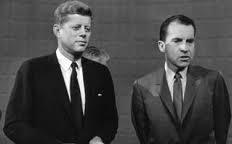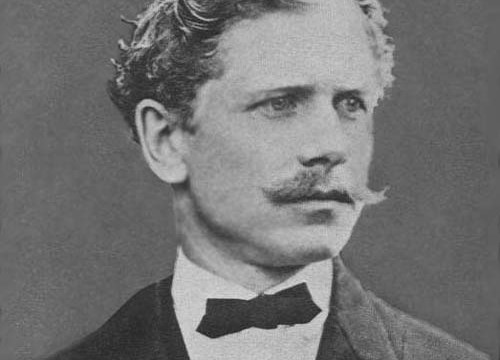Theodore White and the Origins of Modern Election Coverage

At the Washington Post Sunday, Old Dominion journalism professor and author Joyce Hoffmann reflected on the life and influence of journalist Theodore White, best known for his Pulitzer-prize winning The Making of the President 1960 and subsequent campaign trail chronicles.
As Hoffmann describes, White regretted that his insider-accounts of the presidential campaigns had given rise by the 1970s to the now dominant emphasis on horse race, strategy and personality that has served to drown out attention to substantive policy and political debate during elections. Here are key excerpts from Hoffmann’s article, drawing on her research for her 1995 book “Theodore H. White and Journalism as Illusion.”
His book won a Pulitzer Prize, eventually sold more than 4 million copies and led directly to the ceaseless scrutiny now facing the 14 declared candidates for the Republican presidential nomination a half-century later. The success flabbergasted him, since White had repeatedly entertained doubts about his first book. And the type of campaign reporting he helped create came to dismay him.
By the 1972 Nixon-McGovern campaign, White acknowledged that his preoccupation with character and strategy had given birth to quadrennial media frenzies in which presidential politics became a game. He rued the atmosphere of endless critical media attention in which candidates were forced to function, and he took part of the blame.
“It’s appalling what we’ve done,” White told reporter and writer Timothy Crouse during the 1972 campaign. As he watched the parade of reporters file in and out of George McGovern’s hotel room after he won the Democratic presidential nomination, White said: “All of us are observing him, taking notes like mad, getting all the little details. Which I think I invented as a method of reporting and which I now sincerely regret. If you write about this, say that I sincerely regret it,” he told Crouse, who was gathering material for a book that would become a critique of pack journalism, “The Boys on the Bus.”
Who cares, White asked, “if the guy had milk and Total for breakfast?”…
…But readers were captivated by the civics lesson masquerading as an adventure story, and White became, in Walter Isaacson’s words, “the godfather of modern political reporting.” In ensuing campaigns, he was besieged by competitors who imitated his formula, sometimes in ways that outshone his own books about the 1964, 1968, 1972 and 1980 contests. He found reporters assigned to those campaigns foraging deeper and deeper for the same details that had so enriched his first narrative….
….
After nearly 50 years, the apotheosis of White’s invention arrived in a book about the 2008 presidential race — a race no less transformational than the 1960 campaign. Yet, “Game Change,” Mark Halperin and John Heilemann’s narrative of what their subtitle calls “the race of a lifetime,” is devoid of the rich context that White used to frame the Kennedy-Nixon campaign.
It is, instead, a compilation of gotchamoments drawn from the authors’ conversations with 300 campaign sources, far too many of whom remain anonymous. In similar fashion, the chattering classes spotlighted a single anecdote in the book, Sen. Harry Reid’s comments about how the country was ready for a light-skinned African American who spoke “with no Negro dialect,” as a representation of the whole.
For a book to transcend the commonplace and achieve greatness, White once explained to a friend, it needs more than fine language and keen insights.
“A book, to be a great book, must have a unity, a sweeping context and the dramatic unfolding from a single central theme,” he said, “so that the reader comes away from the book as if he had participated himself in the development of a wonder.”
For White, that central theme in “The Making of the President 1960” was built around his reverence for democracy and his amazement at America’s peaceful transfer of power. Without that overarching premise, it’s just about a candidate having milk and Total for breakfast.
See Also:
Horse Race Coverage and the Political Spectacle




